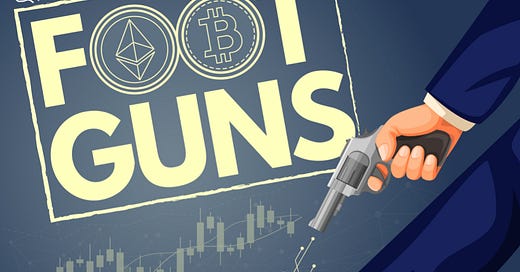The Dollar
Money takes on many forms : debt, credit, coins, plastic cards, cell phones, etc.. Prior to the rise of the internet money still had a technological backend (ledger and log books). The United States dollar has taken on a special role as a money that everyone in the world uses. It is the dominate payment currency for global trade with a 79.5% share of inter-regional currency usage in value. The dollar is also polymorphic, you may know it as the dyed cloth in your wallet, the value you see on a piece of paper you must pay back for your car loan, or the number you punch in to an app in your phone to pay back a friend after dinner.
The dollar can also be transformed into a United States Treasury Bond.
United States Treasury securities are government debt instruments issued by the United States Department of the Treasury to finance government spending as an alternative to taxation.
Wow, what an interesting and complex form of the dollar. Rather than send a guy around to the homes of citizens, spread across vast physical distance, the government
can instead sell United States Treasury securities to investors to raise dollars for government spending.
We are just getting started. What about Commerical Paper? That’s another form of the dollar.
A corporate bond is a bond issued by a corporation in order to raise financing for a variety of reasons such as to ongoing operations, M&A, or to expand business.[1] The term is usually applied to longer-term debt instruments, with maturity of at least one year. Corporate debt instruments with maturity shorter than one year are referred to as commercial paper.
If you are holding digital dollars in your bank account someone you know who is running a company may want to trade you those digital dollars for a corporate bond or commercial paper. This is another technology that allows the value of corporations to be transformed into dollars.
Securities and Crypto
Both of these forms of the dollar are classified as securities. Some other forms of securities are : equities, futures, options, swaps.
A security is a tradable financial asset.
A financial asset is a non-physical asset whose value is derived from a contractual claim, such as bank deposits, bonds, and participations in companies' share capital.
An asset is a present economic resource controlled by the entity as a result of past events.[5] An economic resource is a right that has the potential to produce economic benefits.
At this point, I am going to argue that Bitcoin is a new form of the dollar. Because as you can see from these definitions, it is not a financial asset as it does not give you the right for production of economic benefits. Holding Bitcoin does not guarantee you will receive more dollars back as you’ve entered no agreement.
What Bitcoin does, is it transforms the dollar from a caterpillar into a butterfly - it gives it wings. Value can be sent in ten minutes to anyone on the planet. That value can then be transformed into a security, digital dollars, or paper money (coins). Every money and money tool has its place. People are right to criticize Bitcoin for its shortcomings as a unit of account and as a medium of exchange. It does however have super powers the dollar does not when it comes to storing value and transferring value across vast distances.
You may be thinking that digital dollars can also be transferred world wide in ten minutes but that just isn’t true. Again, digital dollars are like a caterpillar that must crawl across terrain full of obstacles. The dollars must be transferred from server to server and managed by third parties. This creates friction and risk that there is no finality in the transfer as any of the third parties has the right to stop the transaction. Bitcoin on the other hand, like a Butterfly, can go over and past these obstacles because the Bitcoin network allows for direct transfer of value from the sender to the receiver.
Bitcoin is the only digital form of money you can take physical possession over. When you have digital dollars in a bank account they are on some server in some unknown location and your only access to them is through a service provided by the bank. Where as with Bitcoin you can save your private keys on a hardware wallet and be the sole proprietor.
One last point and that is the Ethereum network. Ether (ETH) is another form of money that is interesting in that is has an intended purpose and that is to pay gas on the Ethereum network. The only similarity that can be drawn is a token at a gaming lounge (like Dave and Busters). The value of the token is arguable outside the gaming lounge but inside of it any of the machines will happily trade you game play for the token. In that way Ethereum miners will happily trade you space in a block transactions for some of your ETH.
However, with ETH 2.0 and Proof of Stake you can stake your ETH for a promised return. This starts to sound like a security as it’s an economic resource with the promise of potential economic benefits to the holder.
What is the current polymorphic composition of your dollars?




